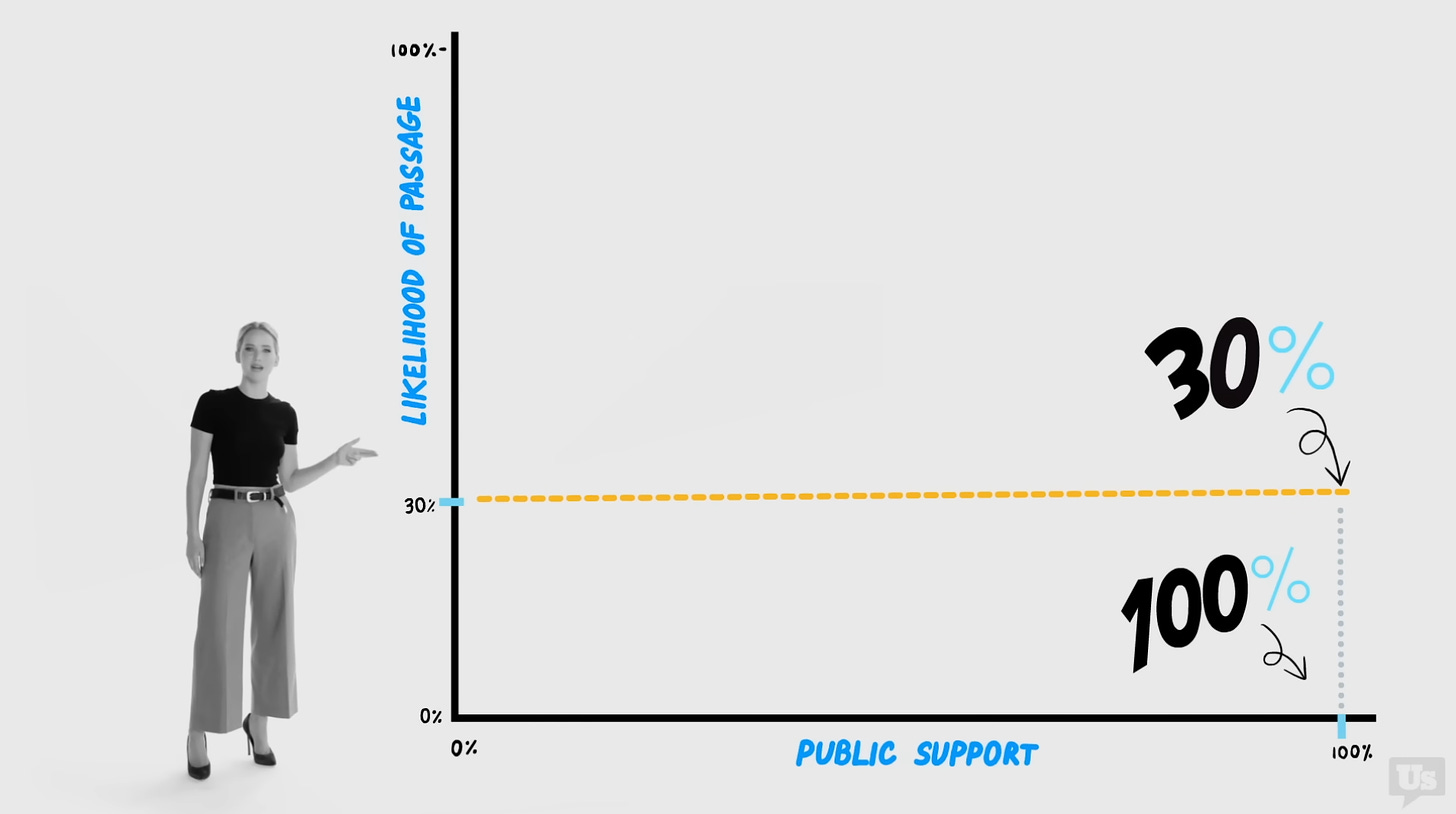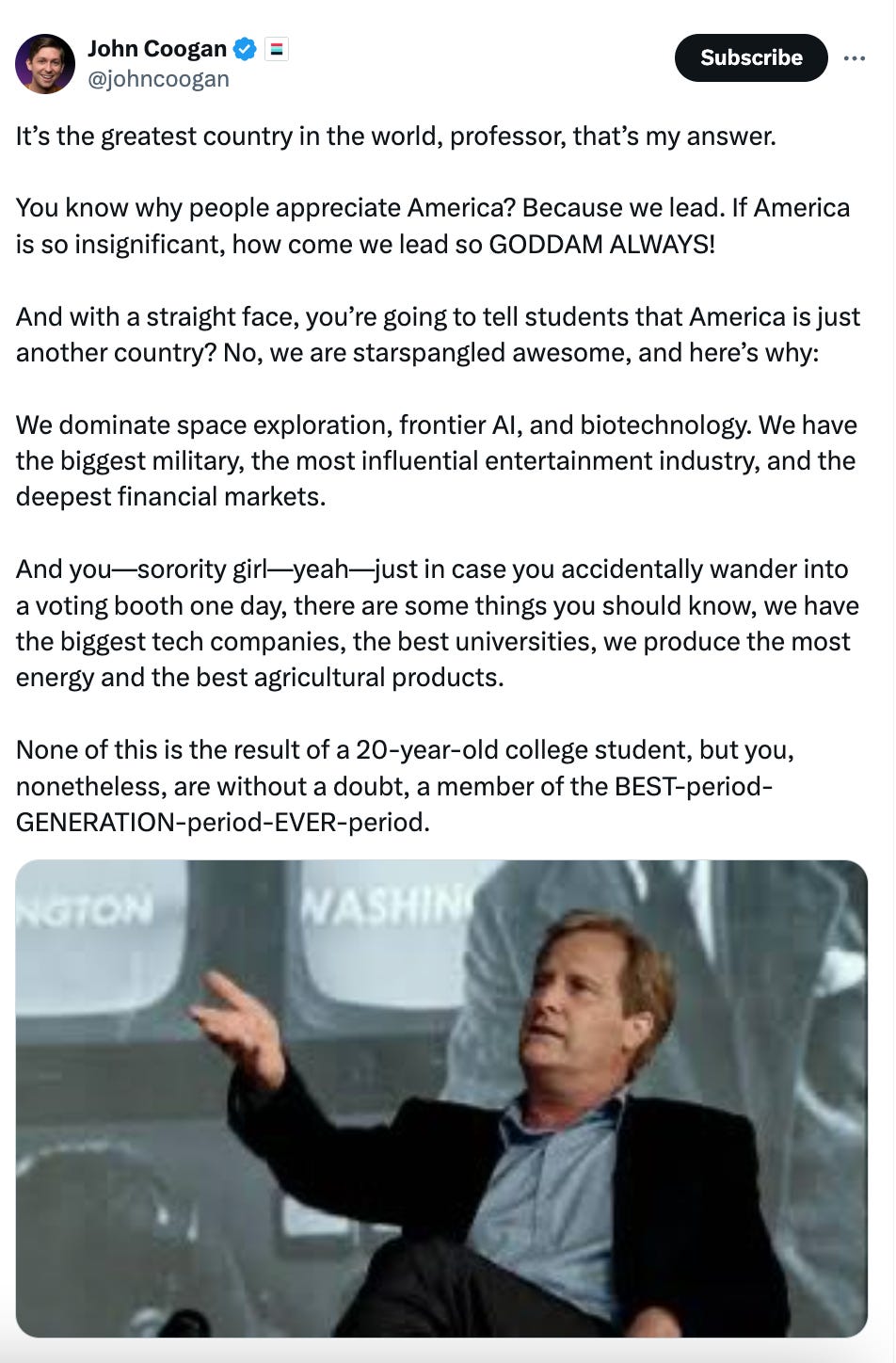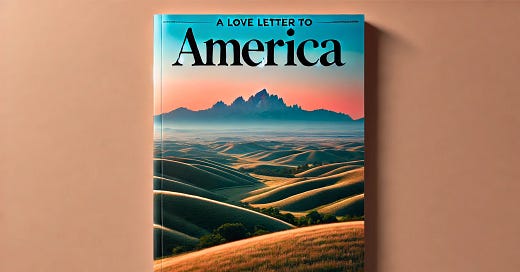This is a weekly newsletter about the art and science of building and investing in tech companies. To receive Investing 101 in your inbox each week, subscribe here:
In 2017 I read a book about education called "The Smartest Kids in the World" by Amanda Ripley. When I wrote about it in my end of the year book review, this is how I started out:
"Recently I had a conversation with some friends, and it can effectively be described as a rabbit hole. We began with talking about education and the problems in our system. But in solving those problems, that led to the failure of the family, which led to poverty, income inequality, and incarceration, which led to a discussion on funding and military spending, which led to a discussion of... elections and campaign finance. Rabbit meet hole.
At the end of the day, I don’t know what the solutions are. I barely know what all the problems are. As Amanda Ripley summed it up, “How much of our problems could be blamed on diversity; poverty; or the vastness of the country? Were our weaknesses mostly failures of policy or of culture, of politicians or of parents?”
This type of rabbit hole is what I feel myself trapped in every time I start to unpack my feelings about the United States of America. While there are those who stand squarely in the patriotic corner of America, continuing to declare that we're the greatest nation on the planet, there are also those on the opposite extreme that are pronouncing the nation to be a dead husk of the freedom bearer it used to be.
I, like I've written about so many times before, struggle to get out of the nuanced middle ground where I can recognize both greatness and gore in what the United States represents. But I can't help but feel an optimistic bent. I see something flawed and broken, but still worth fighting for. The words of Samwise Gamgee from The Lord of The Rings came to mind:
SAM: I know. It’s all wrong. By rights we shouldn’t even be here. But we are. It’s like in the great stories, Mr. Frodo. The ones that really mattered. Full of darkness and danger they were. And sometimes you didn’t want to know the end. Because how could the end be happy? How could the world go back to the way it was when so much bad had happened?
But in the end, it’s only a passing thing, this shadow. Even darkness must pass. A new day will come. And when the sun shines it will shine out the clearer. Those were the stories that stayed with you. That meant something. Even if you were too small to understand why. But I think, Mr. Frodo, I do understand. I know now. Folk in those stories had lots of chances of turning back only they didn’t. They kept going. Because they were holding on to something.
FRODO: What are we holding on to, Sam?
SAM: That there’s some good in this world, Mr. Frodo. And it’s worth fighting for.
Debating America
The biggest siren song for the "optimistic critics" when it comes to America's issues is Jeff Daniels' speech in The Newsroom: "America is not the greatest country in the world anymore." But I struggle with the premise of the speech (not to mention the preachiness).
Freedom, and Freedom
First, he makes the point that freedom doesn't make the U.S. unique:
"With a straight face, you're going to tell students that America's so star-spangled awesome that we're the only ones in the world who have freedom? Canada has freedom, Japan has freedom, the UK, France, Italy, Germany, Spain, Australia, Belgium has freedom. Two hundred seven sovereign states in the world, like 180 of them have freedom."
Freedom House, a non-profit in D.C., "rates people’s access to political rights and civil liberties in 210 countries and territories." In their report out of 210 countries and territories, there are 83 of them considered "free," while another ~58 or so are considered "partly free."
The U.S. is in 60th place for its score on political rights and civil liberties (scored 83). But it still important to recognize that America is ranked higher than other large economic and military powers like Russia (scored 13) and China (scored 9). A quintessential representation of the idea that we have important levels of freedoms, but plenty that could be better.
For one thing, I always remember a video I saw in 2019 about representation in American law-making. The video came from Represent.Us and featured Jennifer Lawrence, but the key point the video makes comes with this chart:

The takeaway comes from a 2014 Princeton study which claimed that, whether a proposed law had 0% public support or 100% support, it would always have a ~30% chance of passing. Meaning that we, effectively, don't have a representative democracy. So in the realm of "things that could be better," that's definitely one to start with.
Tallying The Score
Next, in the Jeff Daniels speech, he goes on to list the myriad reasons why America isn't "the greatest country in the world":
"There is absolutely no evidence to support the statement that we're the greatest country in the world. We're seventh in literacy, twenty-seventh in math, twenty-second in science, forty-ninth in life expectancy, 178th in infant mortality, third in median household income, number four in labor force, and number four in exports. We lead the world in only three categories: number of incarcerated citizens per capita, number of adults who believe angels are real, and defense spending, where we spend more than the next twenty-six countries combined, twenty-five of whom are allies."
This is where Aaron Sorkin, who wrote this speech, really loses the thread. It's so one-sided and choosy as to lose any credibility. I prefer John Coogan's version which, while just as biased, is also accurately acknowledging some key aspects of reality:

The culture war rages on and extremists on both the left and the right will do everything they can to suffocate America as a nation either through intolerance or wokeness. Ignorant swings or misinformed hooks. And that is a legitimate threat.
Perverse incentives will continue to poison aspects of the system. We can make ETFs to mirror politician insider trading and make documentaries about the intense control lobbyists have in reinforcing atrocious systems. But those perverse incentives will continue to shape important systems for the worse.
War mongering and expansionist colonialism will reign from multi-national corporations who envy the monopolies of oil, steel, and railroads of the past. And that will make just about everything more complicated, especially as long as moneyed influence remains in politics.
All of these things are bad. But it doesn't change the fact that America is a unique bastion of freedom, opportunity, and achievement that represents a critical role in human progress.
America's Scorecard
America has built the greatest entrepreneurial spirit of any nation that has ever existed, leading to Silicon Valley and the creation of some of the most important companies in the world. But many of those companies have utilized anti-competitive practices, taken advantage of people, and (in many cases) literally exploit human slavery and child labor.
America has created the most influential cultural megaphone and magnifying lens that has ever existed, leading to Hollywood and the creation of some of the greatest stories ever told. But Hollywood has also help up a myriad of atrocious human beings and given them untold positions of influence.
America has offered some of the most important innovations and innovators in agriculture, from the mechanical reaper to precision agriculture, not to mention Norman Borlaug, whose work is believed to have saved over a billion people worldwide from starvation. But we also have intensely monopolistic food conglomerators, like Monsanto and Cargill, that have wreaked havoc on the American food system.
America has produced some of the most important medical breakthroughs in the history of mankind, from the mass production of penicillin to insulin, polio vaccines, the MRI, genomic sequencing, and minimally invasive surgery. But we also spend more than any other developed nation on healthcare, while witnessing declining life expectancy and atrocious infant mortality rates.
Therefore, What?
The reality of these nuances represent the reality we live in everyday. The opportunities to solve these problems represent what Samwise describes as things "worth fighting for." In Jeff Daniels' speech, he declares that the first step to fixing a problem is acknowledging that you have a problem. And that might be true. But accepting the good and the bad is the critical first step in recognizing that fixing the problem is something worth doing.
I don't want to be blindly optimistic. I don't want to be blindly pessimistic. I want to be wide-eyed, staring down the wide range of issues facing every single person, and then optimistically setting about to do anything I can to help make those things better.
America isn't meant to be an ignorant mass of optimism, nor is it meant to be an unfettered mob of rage. It is defined by that optimistic realism. That willingness to recognize a problem and then fix it. Too many of the forces that be are set about to ensure we sit down and shut up, or stand up and shut up. There is an opportunity for people who are unwilling to bend to extremism, and instead focus on the optimistic realities that can be created if only we pursue them ferociously enough.
Thanks for reading! Subscribe here to receive Investing 101 in your inbox each week:





Great article, Kyle, appreciate your perspective here.
One thing that seems disheartening to me is that even though America has historically been synonymous with the American dream, that dream feels less and less attainable to the average American now than it was 5-10+ years ago.
Just speaking as a fan of your writing, I'd be interested in seeing a follow up post from you on this topic. It would help me make the leap from blind pessimism to wide-eyed optimism.
I'll do a little digging myself, just wanted to give some topical feedback. Looking forward to your next article.
History is very key even though it has been blurred by power and winners. About the rabbit hole, only option I can think of is that we aren't adding a closed loop for things we do. For eg., If we know how garbage turns into compost , we create a loop that eventually fixes thinking- policies -government - innovation as you would not want to disturb the cycle. But as of today we flush the toilet (not knowing what happens to it) and the whoever takes of it and then next in loop..if one of those cycle steps is irresponsible(it happens) , system breaks.